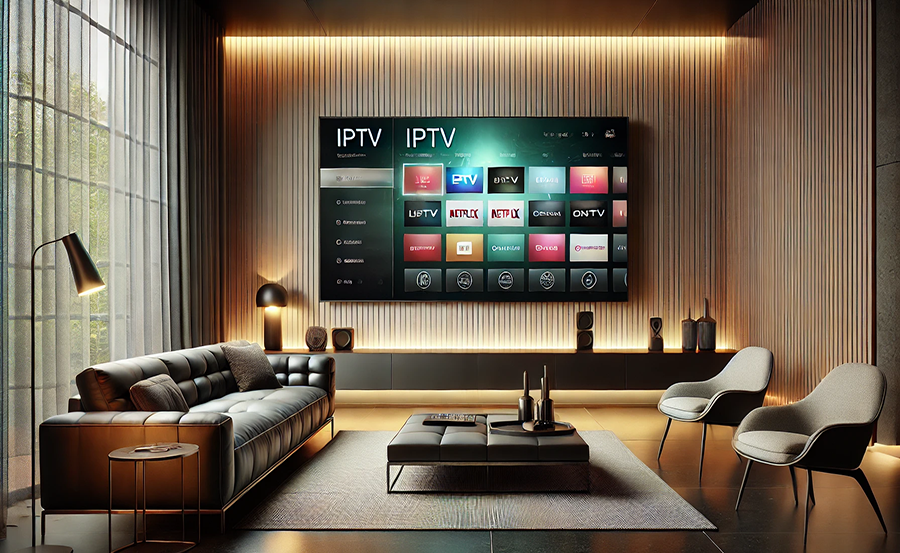The world of television has drastically evolved over the past few years, and at the forefront of this revolution is IPTV, or Internet Protocol Television. While traditional cable TV is still present in many households, IPTV offers a modern alternative that caters to our ever-increasing demand for digital content. But what exactly are IPTV protocols, and how do they bring us our favorite shows and channels? This article aims to offer insights into these protocols, easing beginners into the complexity of IPTV while introducing Yeah IPTV as a leading subscription service in the market.
Buy 1 Year IPTV Subscription and Enjoy Unlimited Content
What is IPTV?
Before diving into the intricacies of IPTV protocols, it’s crucial to establish a clear understanding of what IPTV actually is. In essence, IPTV delivers television content through internet networks. Unlike traditional broadcasting methods, IPTV uses packet-based communication, similar to internet services you use daily.
One key advantage of IPTV is its ability to provide a wealth of interactive features, including video on demand and time-shifted viewing. This means you’re not confined to viewing content at a scheduled time, offering unparalleled convenience and customization in your entertainment options.
Pro Tip:
Say goodbye to cable and hello to convenience with 1 Year Yeah IPTV Subscription our affordable IPTV subscription service.
The Basics of IPTV Protocols
IPTV protocols are the backbone of IPTV services, governing how data is transferred and displayed on your screen. These protocols ensure that video data is delivered efficiently and without interruption while adapting to different network conditions. Some of the most prevalent protocols include RTP, RTSP, and HTTP.
Each of these protocols has distinct characteristics. For instance, RTP, or Real-time Transport Protocol, is commonly used for streaming media, enabling real-time transmission. Meanwhile, RTSP works like a network remote control, letting users play, pause, and record streams, enhancing the video playback experience.
Exploring RTP: Real-time Transport Protocol
Real-time Transport Protocol (RTP) is an integral component of IPTV systems. It offers end-to-end network transport functions perfect for video conferencing and interactive video transmission. RTP facilitates the smooth transfer of multimedia content, including videos and audio, over IP networks.
Key Advantages of RTP
- Ensures minimal delay during data transmission
- Supports both unicast and multicast connections
- Offers synchronization capabilities vital for seamless streaming
RTP stands out because of its ability to compensate for jitter and packet loss, two common disruptions that can affect the quality of streaming media. Through efficient use of buffering and synchronization, RTP assures viewers get a consistent experience.
Understanding RTSP: Real-Time Streaming Protocol
Consider RTSP as a powerful tool for managing and controlling multimedia streams over the internet. It’s often used in conjunction with RTP to handle session initiation, providing the controls needed to maneuver through live video streams.
RTSP has a client-server structure where the client can send requests to the server to perform actions like playback, pause, and record. Despite its control-focused nature, RTSP on its own doesn’t transmit the stream but is vital for facilitating a smooth interaction with it.
HTTP: The Omnipresent Protocol in IPTV
While known primarily for transferring data over the web, HTTP is also a critical player in IPTV. HTTP’s wide adoption makes it a natural fit for delivering video content, particularly for on-demand services.
Why HTTP, you ask? Its reliability and simplicity make it ideal for systems where robust, scalable delivery is needed without the demanding infrastructure typically associated with other streaming protocols. It’s compatible with CDNs, too, which helps distribute the load effectively across multiple servers.
The Role of Yeah IPTV in High-Quality IPTV Subscription
So where does Yeah IPTV fit into this digital landscape? Known for being one of the best IPTV subscriptions globally, Yeah IPTV offers a staggering variety of channels paired with high-definition streaming quality. Thanks to its use of cutting-edge IPTV protocols, users can enjoy buffer-free viewing with an array of network adjustment tools to optimize performance.
Yeah IPTV excels in incorporating some of the protocols discussed, which leads to efficient and reliable transmission of high-quality video streams. That, mixed with superior customer service and an intuitive interface, makes it an excellent choice for IPTV enthusiasts.
How to Choose the Best IPTV Service Provider
Choosing an IPTV provider can be daunting, given the myriad options available. Here are some tips to guide you:
- Channel variety: Look for providers that offer diverse channels that suit your interests.
- Stream quality: Opt for services that deliver high-definition streams to enhance your viewing experience.
- Customer support: Reliable support can make a huge difference. Make sure they offer prompt assistance when needed.
- Subscription plans: Flexible subscription plans ensure you get value for your money without overspending.
With YeahIPTV, not only are these boxes ticked, but you’ll also gain access to a seamless streaming experience celebrated for its stability and high-quality visuals.
Ensuring the Best IPTV Streaming Experience
To optimize your IPTV streaming experience, consider these insightful tactics:
- Ensure a robust internet connection: The speed and stability of your connection directly impact streaming quality.
- Utilize a modern device: Streaming on newer smart TVs or boxes can significantly enhance performance.
- Regularly update software: Keeping your devices and apps up-to-date prevents many technical issues.
Yeah IPTV users often find that these steps contribute to minimizing both disruptions and buffering, allowing for an enjoyable and trouble-free viewing journey.
Future Trends in IPTV
The IPTV industry continues to evolve, with new trends emerging each year. One area seeing rapid growth is interactive television, offering enhanced features such as trivia, voting, and on-the-fly information about the current show or advertisement.
Another exciting development is the integration of IPTV with other digital services, including smart home systems and voice-activated assistants like Alexa and Google Assistant. This fusion is setting the stage for a smart entertainment ecosystem where IPTV is a critical component.
Final Thoughts on IPTV Protocols
IPTV protocols form the intricate fabric of modern television delivery, making them essential knowledge for anyone curious about the future of TV technology. While understanding every technical facet can be daunting, services like Yeah IPTV make it easy for even the most novice users to enjoy high-quality IPTV subscription services.
Continuing advancements in IPTV protocols promise even better performance and more features, ensuring viewers can expect a bright future filled with endless entertainment possibilities. Whether you’re a tech enthusiast or someone just looking for their next favorite show, IPTV offers a dynamic viewing experience incomparable to traditional TV formats.
Frequently Asked Questions

What is the main advantage of using IPTV over traditional cable?
IPTV allows for more flexibility with features like on-demand viewing and multi-device compatibility, offering a viewing experience tailored to individual preferences.
How does RTP improve my IPTV experience?
RTP ensures low-latency transmission, reducing buffering and providing a smoother streaming experience, crucial for watching live events without interruptions.
Why choose Yeah IPTV for my subscription?
Yeah IPTV is renowned for its vast channel selection, high-definition streams, and excellent customer support, making it a top choice for IPTV services globally.
Do I need special equipment for IPTV?
Generally, no special equipment is necessary beyond a compatible device like a smart TV, computer, or streaming box, but a stable internet connection is vital.
How do IPTV protocols affect streaming quality?
IPTV protocols manage the data transfer process, ensuring that you receive content efficiently and with minimal disruption, playing a crucial role in the streaming quality.
Is IPTV legal?
Yes, IPTV is legal in most countries. However, it’s essential to choose a reputable provider like Yeah IPTV to ensure you’re accessing content legally and ethically.
Can I record IPTV content?
Many IPTV services, including Yeah IPTV, offer features that allow users to record content, similar to traditional DVR setups, enhancing convenience and accessibility.
A Complete Guide to Perfect Player for IPTV on Your Android Device

